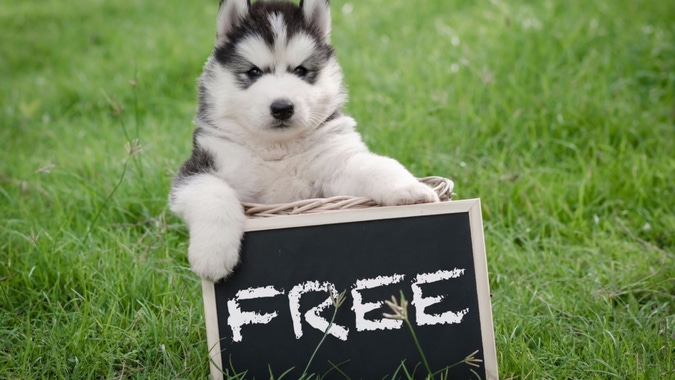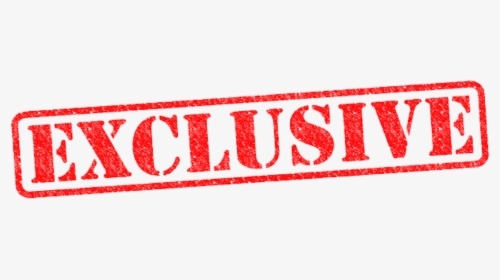10 Powerfully Persuasive Words Your Customers Want to Hear

10 Powerfully Persuasive Words Your Customers Want to Hear
Did you ever stop for a second and think about why you bought some products and put others on the shelf? When most of the time we have little or no first-hand experience with the products we choose, how do we make decisions between all our choices every day? What things made you finally decide to go to a new restaurant, use a new toothpaste or change a new software? The answer depends largely on the type of words used to sell products or services. You may never realize this, but language plays a huge role in helping our brains decide which products to buy. There are many variables, but one thing has been proved repeatedly – some words sell better. That’s how they are. Read on to know 10 powerfully persuasive words your customers want to hear.
Here are 10 words that customers like to hear when making decisions:
1. Free

If you think the word “free” is despicable, please think twice. People like freedom, simplicity, and plain. Almost anything you can give away for free. No matter how small, you will attract people’s attention.
Gregory Ciotti of Help Scout pointed out this through research in which researchers asked people to select between $0.15 Lindt truffles and $0.01 Hershey kiss. Surprisingly, 73% chose Lindt truffle.
Then they made another group select between a $0.14 Lindt truffle and a free Hershey kiss. This time, 69% selected a Hershey kiss. This is Because everyone likes free things.
2. Exclusive

Everyone wants to join the “in” crowd. When you make your product exclusive – only to specific groups – you make people want it more. You can exchange the word “exclusive” with other words or phrases – members only, invitations only, first “insiders” – everyone wants to join.
3. Easy.
Sad as it is, Mayberry no longer exists, at least in most parts of the world. Life is complicated, and we may just be lazy. So whenever we hear something simple or easy to do, we are attracted by it.
I have helped conduct surveys to ask customers what is the most important purchase factor when buying software, and “ease of use” ranks in the top three. When in doubt, don’t bend your muscles. Functions are good, but not when they sacrifice simplicity.
4. Limited.
It can be as simple as a bobblehead in a local minor league baseball game. If they say that the top 100 people can get one for free, suddenly those bobbleheads are more attractive. I mean, what are you going to do with a bobblehead? Who cares? It’s a big deal. You have to make a decision before it’s too late, so you joined.
5. Get.
HubSpot cites a test conducted by the Brittanica encyclopedia, which replaced the title of a question with a title beginning with “get”. The conversion rate doubled.
I don’t have a research-supported explanation, but I want to say that this is because get is an action word that psychologically makes readers responsible and ready for their actions. There is usually an advantage behind getting. After six weeks, get a flattened stomach. Get good grades with Less study. Get the freshest and cleanest haircut. You can understand the thing.
You can also use other verbs, such as claim, start, try, grab or give.
6. Guaranteed
With so many frauds in the world today, authenticity is a reasonable concern for your customers. Using the right words can reassure them that they need to pull the trigger.
You may have seen this anywhere because it works. However, the key is to be able to really support your guarantee. If your product is not guaranteed, the return is not without trouble, or your results have not been confirmed, don’t say it. It may work in the short term, but it will bring you down. That is, if you don’t provide a guarantee, maybe it’s time to do so.
The other words you can use to provide assurance are proven, results, non-obligatory, risk-free, trouble-free, and safe.
7. You.
When you are writing a sales copy or anything persuasive, use first-person language. This will cheer up the ears of the reader or audience a little. And – at the unconscious level – it makes them feel special.
Using “you” can make your writing more conversational and bring your voice to a friendly level, so that you can really establish a connection.
8. Because.
This is interesting. Gregory Ciotti cites research in the Robert Cialdini book ”influence” through the use of interesting scenes. One of the outstanding problems is to test different phrases to see which phrase makes people most likely to allow someone to jump in line in front of the copy machine.
“Sorry, I have five pages. Can I use the Xerox machine?” – 60% allowed the person to cut in line/jump the queue.
“I have five pages. Can I use the photocopy machine because I’m in a hurry?” – 94% allowed the person to cut in line/jump the queue.
“Sorry, I have five pages. Can I use the photocopy machine because I have to make photocopies ?” – 93% allowed the person to cut in line/jump the queue.
Note that by simply hearing a “because” and then a reason, almost everyone thinks this person can be ahead of them. The reasons given are not even justifiable. Because I want to make copies? Everyone in line has to make copies – that’s why they’re there.
Remember that the human brain likes to explain. We need to know why. Why do I need this feature? Because it will help me get it.
By linking your products, features, and the actions and reasons you want people to take, people will be more forced to take action.
9. The best.
Which sounds better? “How to change or replace a flat tire” or “best way to change or replace a flat tire”
This is a no-brainer problem, really. Think about how many times you have searched Google, but you feel frustrated in the search process, so you go back and add the word “best” before the search. Maybe I’m the Solo one, but I’m feeling that I’m not the only one.
It’s like “best” is a sacred word that only grants to really great people, so you can expect anything marked as the best. We all know that’s not true, but calling something the best means that there is a comparison at a certain point, which is the most important.
But please don’t deceive me in this matter. If you’re not really the best, or you can’t make people call you the best without coercion, keep trying and do your best in what you do. Don’t put labels on yourself without verification.
10. Compare.
With the emergence of social media and many comment websites and blogs, almost everyone will compare before making a decision.
Ford vs. Chevrolet
Pampers vs. Huggies
Hubspot vs.Marketo
We want to know who the top players are and then we want to see them play side by side. Use it for your own advantage by telling your readers to compare your quality, ease of use, price, etc. with your competitors. Even better, you can make your own comparison to make it easy for them to accept.
When you publicly show them the differences between your products and competitors, you will make them give up the job, and they will be grateful for it.
We would love to hear about your ideas, suggestions, and questions. So feel free to contact us.
Related:
Write fascinating product descriptions – Best Tips
Lucas Noah, a distinguished writer with a Bachelor of Information Technology (BIT) degree, is currently making waves in the digital content sphere with his contributions to Creative Outrank LLC and Oceana Express LLC. His work on their websites showcases hi... Read more